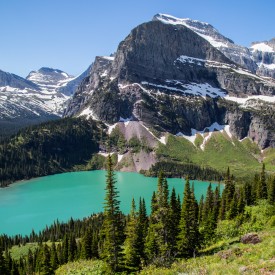At the urging of a controversial team of advisors, the Trump administration is mulling proposals to privatize national park campgrounds and further commercialize the parks with expanded Wi-Fi service, food trucks and even Amazon deliveries at tourist camp sites.
This story Louis Sahagun originally appeared in the Los Angeles Times.
Leaders of the Interior Department’s “Made in America” Outdoor Recreation Advisory Committee said these changes could make America’s national parks more attractive to a digitally minded younger generation and improve the quality of National Park Service facilities amid a huge maintenance backlog. As part of its plan, the committee calls for blacking out senior discounts at park campgrounds during peak holiday seasons.
But the group’s proposals face angry opposition from conservation organizations and senior citizen advocates, who call them a transfer of public assets to private industry, including businesses led by executives appointed to the Outdoor Advisory Committee.
“America’s outdoor heritage is on the line,” said Jayson O’Neill, deputy director of the Western Values Project, a nonprofit public lands watchdog group in Montana. “The trouble with these recommendations is that they were written by concessionaire industry representatives vying for more control of national parks.”
The proposal to restrict the use of senior discounts drew a sharp response from Bill Sweeney, senior vice president of government affairs at AARP.
“This proposal is an insulting attempt to push older Americans out of our national parks,” he said. “The cost of a senior pass already jumped in recent years from $10 to $80, and this proposal would further hurt older Americans who want to visit national parks. Enough is enough.”
Since taking office, President Trump and his administration have sought to privatize an array of public services, including parts of the Veterans Administration and the U.S. Postal Service. At the same time, the White House has sought to reduce spending for many public services, such as its plan to cut the National Park Service’s budget by $481 million in 2020.
Critics say the administration is engaged in a self-fulfilling prophesy, arguing that private industry can deliver better than the public sector even as the White House starves public agencies of resources. But what really angers opponents is how corporate donors and businesses with a vested interest in park privatization have been invited by the Trump administration to offer proposals for further concession opportunities.
